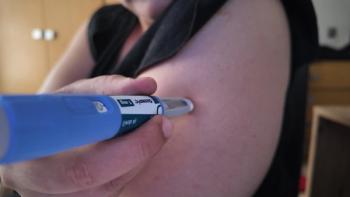
Universal Precautions: Assuming Low Health Literacy to Ensure Patients Understand
Nurses at Rutgers Cancer Institute of New Jersey reviewed their patient education program.
Poor health literacy can often lead to poor health outcomes. These patients may suffer from more chronic conditions, more frequent use of emergency services, and have more instances of preventable hospital admissions. Adequate patient education is especially important for patients with cancer, who generally want as much information as possible and are at a risk of becoming overwhelmed.
To ensure that patients with poor health literacy fully understand their diagnoses and treatments, patient education must be clear and comprehensive. With that in mind, nurses at the Rutgers Cancer Institute of New Jersey (RCINJ) reviewed a new patient orientation class that is offered at the Institute. They wanted to be sure that patient education material was at an appropriate reading level, easy to comprehend, and easy to follow. The goal of the program was to eliminate and minimize health literacy as a barrier to care, and make changes on a systemwide level that could result in lasting, safe, patient-centered care.
“When a patient does not clearly understand their treatment plan, it can be challenging for that individual to be compliant with necessary medications and lifestyle changes. The risk for negative outcomes increases when information is not provided in a way that is easily understandable,” explained Carla Schaefer, BSN, RN, OCN, first author on the research presented during a poster presentation at the 2017 ONS Congress.
At the New Patient Orientation class, patients and family members are provided with information regarding available services. The information is projected on a screen, printed handouts are distributed, and members of the healthcare team speak. At the end of the program, a survey was given to learners. From this, barriers to learning and the preferred method of learning for each patient was assessed and documented in the electronic medical records (EMR).
All written information provided to patients was evaluated by the Patient Education Committee to ensure the content was easy to reference and written at a low reading level. “Universal precautions” were used; it was assumed that every patient had low health literacy to avoid the risk of any patient not comprehending. The teach-back method and open-ended questions confirmed what had been retained.
“By assessing our new patient orientation program, we can ensure the patients are receiving the information they need at the appropriate comprehension level,” said Schaefer, associate director of infusion services at RCINJ.
The nurses studied the program over a 6-month period. During that time, 606 patients were determined to be new infusion patients. Seventy percent of those registered for some mode of patient orientation—either remote access (n = 312) or the live program (n=123).
Based on the response of 59 patients, 55 found the session to be of appropriate length. On a Likert scale of 1-5 for how helpful the session was, 47 patients scored it at “5.” On a Likert scale of 1-5 for how easy to understand the session was, 53 scored it a 5.
The nurses did not that the number of patients who view the orientation remotely has not been captured, and very of those [remote-accessed] participants complete and return the survey of comprehension. Additionally, they noted that the only other educational offerings currently available are written documents for Spanish-speaking patients.
In the future, iPads could be used during a patient’s first infusion visit, so they can view the orientation then rather than independently at home. Additionally, after orientation, a nurse navigator could hold a consultation with the patients, to individually assess learning preference and barriers to learning, and personalize their patient education.
Newsletter
Knowledge is power. Don’t miss the most recent breakthroughs in cancer care.


































